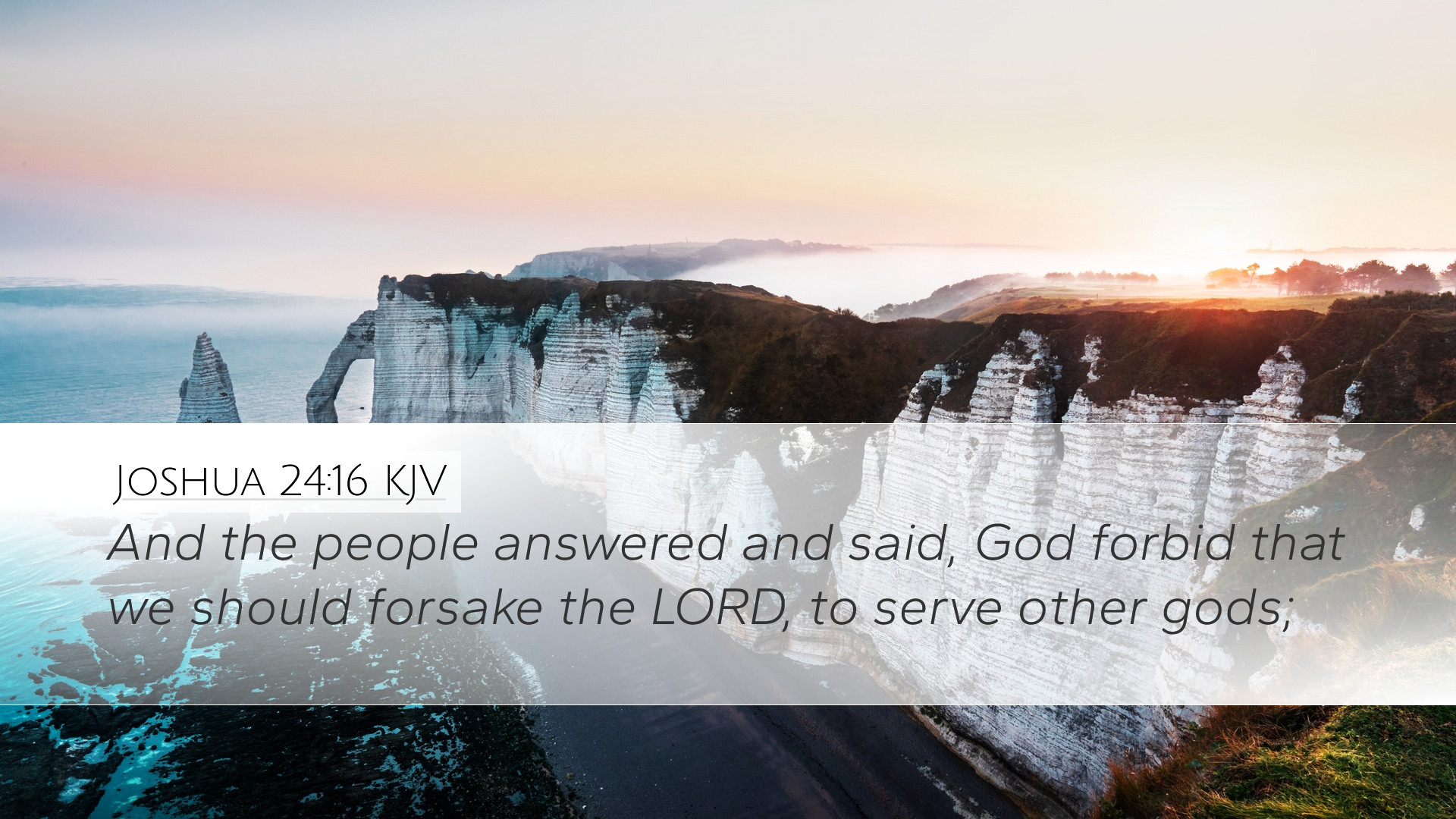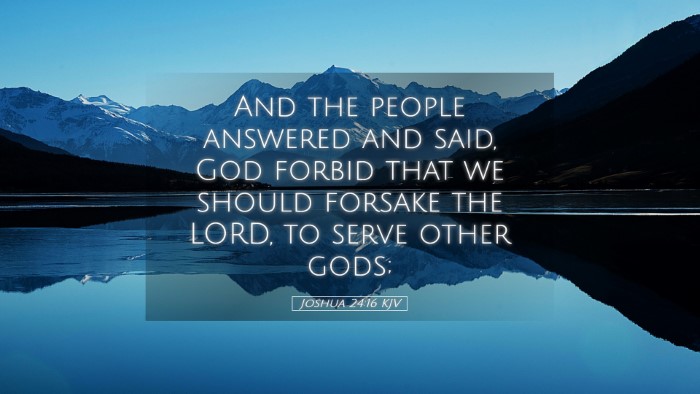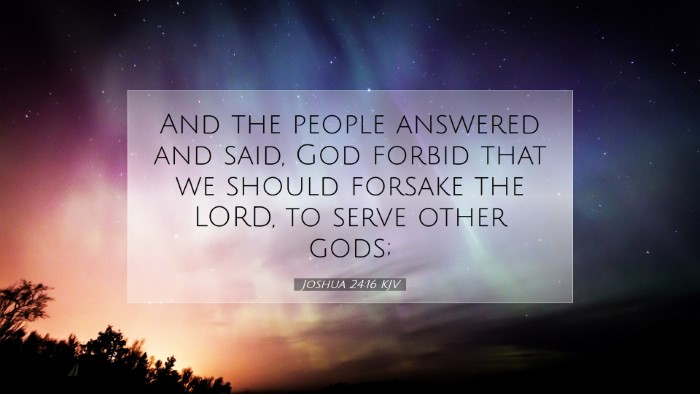Commentary on Joshua 24:16
Introduction
In Joshua 24:16, we find the poignant response of the Israelites to Joshua's challenge regarding the worship of God. This verse encapsulates a significant moment in the history of Israel, reflecting their commitment and covenant relationship with God. As we delve into the commentaries of esteemed theologians, such as Matthew Henry, Albert Barnes, and Adam Clarke, we will unfold layers of meaning embedded in this passage, offering insights valuable for pastors, students, theologians, and scholars alike.
Exegesis of the Text
The full verse reads, "And the people answered and said, God forbid that we should forsake the LORD, to serve other gods." This declaration highlights the Israelites’ resolve to maintain fidelity to Yahweh amidst Joshua's exhortation to choose whom they will serve.
Understanding the Context
Joshua stands at the culmination of his leadership, gathering the tribes to remind them of their covenant obligations. The historical backdrop involves the recent conquest of Canaan and God's faithfulness, which marks a pivotal moment for the Israelites to reaffirm their allegiance to Him.
Henry remarks on the timing of this declaration, emphasizing that such choices must often be re-evaluated, as circumstances change and faith is tested over time. Joshua's call serves as a necessity for renewal, a reminder of the deliberations that accompany covenantal faithfulness.
Theological Significance
The theological weight of this incident is profound. Barnes notes that the Israelites’ response is an affirmation of monotheism in a polytheistic culture. It reflects their awareness of God’s righteousness and the implications of turning away from Him.
Clarke expands on this by discussing the nature of true worship and commitment, suggesting that the Israelites express a theologically sophisticated understanding of their identity as God’s chosen. Their declaration is not merely an emotional reaction; it exemplifies a conscious choice rooted in covenant theology.
Insights from Matthew Henry
Matthew Henry draws attention to several key aspects of this response:
- Affirmation of Unity: The people’s response signifies their collective agreement, indicating a communal identity as followers of Yahweh.
- Recognition of Consequences: Their statement, "God forbid," reveals an understanding of the dire consequences associated with idolatry and abandonment of their covenantal relationship.
- Covenant Loyalty: Henry emphasizes that faithfulness to God entails the rejection of any competing allegiances, urging believers to reflect on their commitments in a similar manner.
Perspectives from Albert Barnes
Albert Barnes provides a detailed examination of the rhetorical elements at play in this response. He highlights:
- The Concept of Forbidding: The phrase "God forbid" itself carries a weight of repudiation that underscores their commitment not just to God, but also against any form of idolatry.
- Informed Decision Making: Barnes posits that the Israelites were not simply reacting to a call, but were instead embodying a robust theological acumen that informed their decision.
- Future Implications: Their declaration comes with an awareness of past failures and the necessity for vigilance in faith.
Insights from Adam Clarke
Adam Clarke offers a nuanced exploration of the textual implications behind the Israelites' commitment. He articulates:
- Historicist Framework: Clarke emphasizes the historicity of their declaration as a vital moment, shaped by their journey through the wilderness and the struggles they faced.
- Transcendent Truths: The commitment they express goes beyond contextual worship; it transcends to principles relevant for all generations, speaking to the nature of God as sovereign and deserving of undivided worship.
- Call to Action: Clarke’s commentary serves as a challenge to modern believers to confront their priorities and ensure their commitment to God is both vocal and evident in their actions.
Application for Today
The themes presented in Joshua 24:16 resonate profoundly within the contemporary church. The urgency of decision-making in the face of competing cultural narratives calls for a reassertion of faithfulness to God.
Pastoral Reflections: This passage serves as a sermon template for pastors, encouraging congregations to engage actively in their faith commitments. Questions of fidelity should be posed to congregations in light of this verse, prompting self-reflection.
Theological Implications: The theological implications of Israel’s declaration invite scholars to explore the dynamics of covenant, identity, and worship within the broader biblical narrative.
Conclusion
Joshua 24:16, as reflected upon through the insights of Henry, Barnes, and Clarke, challenges believers to honestly evaluate their allegiances. This verse serves not only as a historical account but as a call to eternal vigilance in faith commitment, urging a steadfast response amidst life’s challenges.


